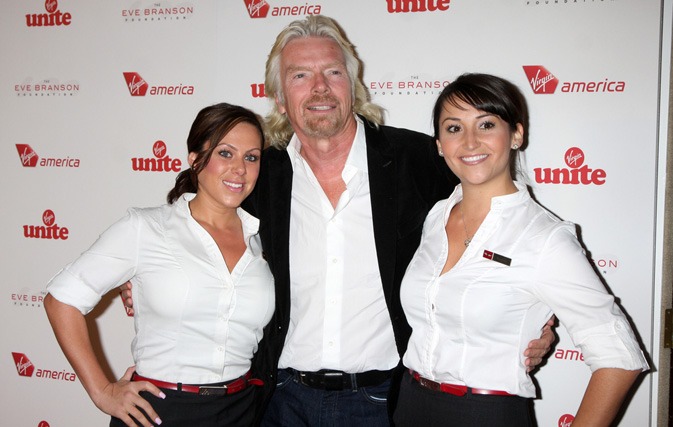Virgin America starts trading shares to the public today, and the timing of the IPO could hardly be better.
Airlines are reaping huge profits thanks to full planes, rising revenue and falling fuel prices. After years of losing money, Virgin America is now profitable.
The Richard Branson-backed airline priced the shares at $23, near the middle of its announced range of $21 to $24 each. The price would raise more than $300 million before expenses. The shares were set to begin trading on the Nasdaq stock market under the ticker symbol “VA.”
Virgin America Inc. started flying in 2007 with the goal of being low-cost but high-flair. Its Airbus jets feature mood lighting, leather seats and seatback touch screens for watching TV, ordering drinks or chatting with passengers in other rows.
The airline scores well in traveller surveys but lost money for six years until earning $10 million in 2013. It is hobbled by limited destinations and a thin schedule. Virgin carried about 6 million passengers last year _ less than 6 per cent of the crowd that flew on Southwest Airlines. And Virgin’s key transcontinental service faces stiff competition from American, Delta, United and JetBlue, which are chasing the same lucrative business travellers with amenities such as lie-flat seats.
In an interview Friday, CEO David Cush said he was confident that his airline would compete on those key routes and said that having a lie-flat bed on a 5-hour cross-country flight was overrated.
Branson’s Virgin Group remains a minority stockholder. The billionaire’s empire suffered a setback last month when a test-flight accident destroyed Virgin Galactic’s SpaceShipTwo, designed to carry tourists into space for $250,000 each. A test pilot was killed. Cush said the accident would not affect the airline.
“We’re obviously sad to lose someone from the family, but we also understand that they’ve got a bit of a high-wire act they’re trying to do there,” Cush said. He said that the accident would not cause Branson to shrink from his role as the public face of the airline.
Airlines and their shareholders have been flying high the past two years. Mergers have reduced competition and fares have increased.
Since the start of 2013, shares of many major U.S. airlines have more than doubled; Delta Air Lines Inc. and Southwest Airlines Co. have jumped about four-fold. Airline stocks sagged briefly in early fall, but they’ve been rising again since early October on falling prices for jet fuel _ just in time to boost Virgin’s public stock offering.
“Everything just worked out,” Cush said.
